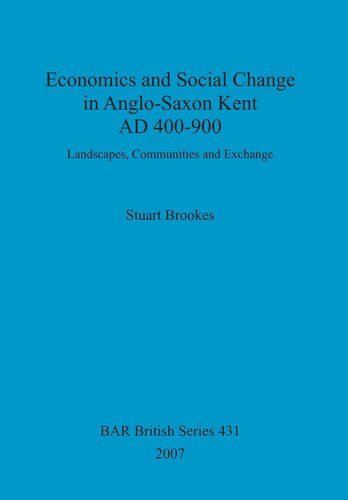

Most ebook files are in PDF format, so you can easily read them using various software such as Foxit Reader or directly on the Google Chrome browser.
Some ebook files are released by publishers in other formats such as .awz, .mobi, .epub, .fb2, etc. You may need to install specific software to read these formats on mobile/PC, such as Calibre.
Please read the tutorial at this link: https://ebookbell.com/faq
We offer FREE conversion to the popular formats you request; however, this may take some time. Therefore, right after payment, please email us, and we will try to provide the service as quickly as possible.
For some exceptional file formats or broken links (if any), please refrain from opening any disputes. Instead, email us first, and we will try to assist within a maximum of 6 hours.
EbookBell Team

0.0
0 reviewsThis book examines archaeological and historical evidence for the socio-economic organization of the kingdom of East Kent, England, as a territorial and social system during the Early to Middle Anglo-Saxon period (AD 400-900). Explicit archaeological and theoretical frameworks are considered to propose a hierarchical model of the spatial organization of communities as a way of providing a micro-economic case study of state formation. In addition to other classical economic and geographical analyses applied, the distributional approach examines the frequency or quantity of commodities with respect to units of economic consumption, such as individuals, households and communities. By examining the saturation levels of community consumption as represented in burial assemblages, a hierarchical model of value regimes underlying exchange sub-systems is suggested. Taken in combination with an analysis of the geographical organisation of settlement, the author argues a thesis on the way regional space was socially and spatially constructed in ways that restricted and monopolised allocative and authoritative resources. Correlations between spatially-distributed phenomena and features of the physical environment are assessed in order to consider the social dynamic in land-holding underlying the territorial and spatially-definable conditions of reproduction. An assessment is made of the importance of restrictions on the movement of people in social formation, by analysing the relationships between routes of communication, the mortuary landscape, and the visual experience of movement. Finally, consideration of these phenomena with respect to changing exchange systems provides models of early medieval state formation.